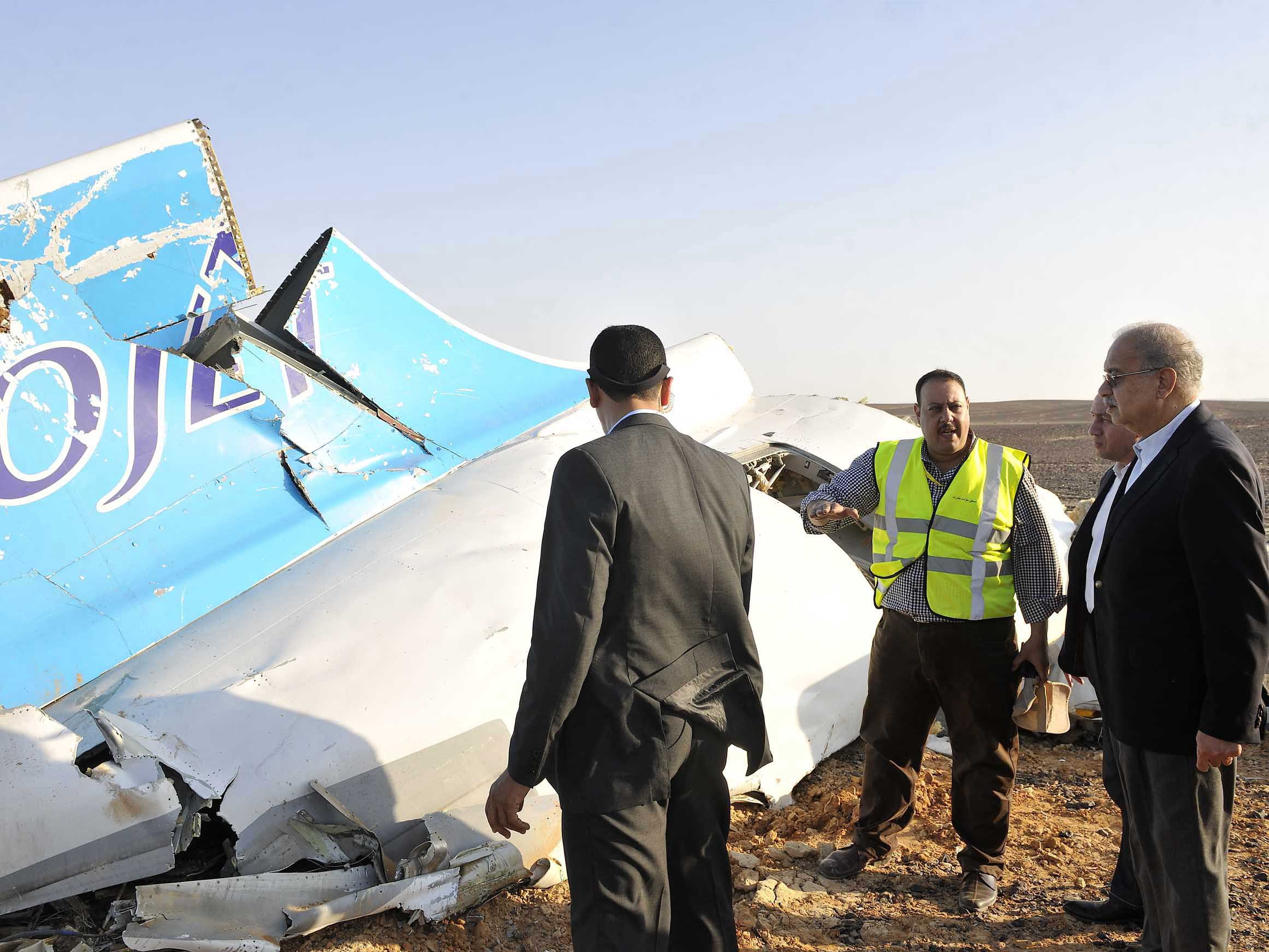Russian plane crash: Foreign spies, not GCHQ, found 'chatter' evidence of Sinai bomb plot
Operation against Isis affiliate considered chief suspects for plane disaster is stepped up

Information from the intelligence agency of another country, rather than Britain’s own, led the Government to conclude that a bomb probably brought down the Russian airliner that crashed in the Sinai.
It was reports from an undisclosed “third party” agency, rather than Britain’s own GCHQ, that revealed the so-called “chatter” among extremists after the disaster that killed all 224 passengers and crew – and ended with the suspension of all British flights to Sharm el-Sheikh, according to authoritative sources.
British officials are said to have asked whether the same information had also been passed to Egypt, and were told that it had.
Relations between Britain and Egypt have appeared strained since the incident, following accusations that Britain did not share vital intelligence with the Egyptian government and was too hasty in cancelling flights to Sharm el-Sheikh, though Egyptian officials were reported by Sunday to have come to the same conclusion about a bomb.
Sources declined to say which friendly country passed the information. The US and Israel – whose own borders have been threatened by Isis in Sinai – as well as Arab nations in the region all have an interest in monitoring activity in the area.
The revelation comes as the Western security services are rapidly stepping up their focus on the leading members of the Isis affiliate that calls itself Sinai Province. British sources named the group’s spiritual leader, Abu Osama al-Masri, as a “person of interest” on Sunday. Believed to be 42 and a former clothing importer, Masri studied at Cairo’s Al-Azhar University, considered the world’s most prestigious seat of learning for Sunni Islam. He is thought to have been born in north Sinai and grown up in Sharqiya in the Nile Delta – the birthplace of al-Qaeda chief Ayman al-Zawahiri and other high-profile jihadists.
Four days after the Russian Airbus A321 crashed last week an unverified audio recording was released in which a man believed to be Masri claimed responsibility. The recording stated: “We are the ones who through the grace of God brought about the downing of the plane and are not obliged to reveal the mechanics of this … we shall reveal in the coming days the mechanics of the downing of the plane at the time we want, and through the method we deem best.”
The message mentioned that 31 October, when the plane exploded, corresponded to the date when Masri’s group first swore allegiance to Abu Bakr al-Baghdadi, the leader of Isis, last year.
Jihadist activity in Sinai increased following Egypt’s popular uprisings in January 2011, buoyed in part by the release of an estimated 800 Islamists under the ensuing military rule, and of a further 27 by former Muslim Brotherhood President Mohammed Morsi. Sinai Province has carried out a string of attacks against Egyptian security and military targets, notably in the northern Sinai town of Al-Arish, where three judges were shot dead in May this year. In all, it has killed hundreds of police and soldiers. But its decision to target foreign civilians is seen as a radical departure.
Not named by British sources, but also in the frame for involvement in the attack, is Shadi el-Menai, said to be the founder of the group Ansar Beit al-Maqdis, who also pledged allegiance to Isis last year. El-Menai, said to have been radicalised while in an Egyptian prison, is described by the Sinai specialist Mohannad Sabry in his recent book on the history of militants in the peninsula as “one of Sinai’s most notorious criminals”.
Michael Horowitz, a senior analyst at the Middle East security consultancy the Levantine Group, said that if a bomb brought the plane down, Masri “most certainly was involved in the plot... It crossed a line, even by Isis’s standard, and was thus likely discussed by the group’s highest echelon. The attack probably stems from a desire among the Isis leadership to carry out an ‘al-Qaeda-like’ attack, and is meant to outbid the group’s rival”.
Former Lebanese General Elias Hanna, a lecturer in geopolitics and security at the American University of Beirut, told The Independent that naming suspects such as Masri so quickly might backfire. “When you talk about Masri, you’re helping him become more credible, more of a hero. His objectives are met.”
Meanwhile, Egyptian security forces shot dead another leading Sinai Province member suspected of masterminding and carrying out assassinations and bombings, the interior ministry said today. It said Ahraf Ali al-Gharabali was killed in a shootout with security forces in the northern Cairo district of al-Marj.
Join our commenting forum
Join thought-provoking conversations, follow other Independent readers and see their replies
Comments
Bookmark popover
Removed from bookmarks